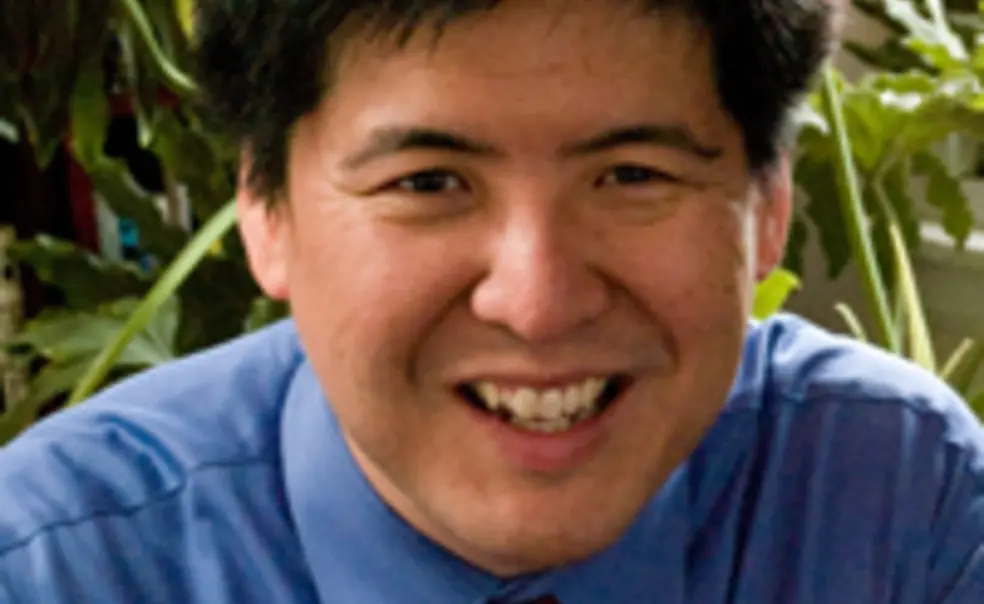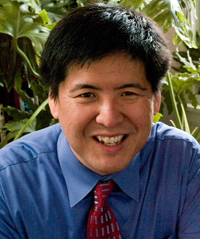Good reads: Neuroscientist Samuel S. Wang
Looking for a good read? PAW asked some professors for their recommendations for the following categories:
1. Your favorite book to teach
2. The must-read book in your field
3. Your favorite pleasure read
4. The book you are currently reading
Each Tuesday for several weeks PAW will post a professor’s suggestions on The Weekly Blog, starting with those of Associate Professor of Molecular Biology and the Princeton Neuroscience Institute Samuel S. Wang. In upcoming weeks, look for the recommendations of Director of the Program in Jazz Studies Anthony D.J. Branker ’80, Professor of Mechanical and Aerospace Engineering Michael G. Littman, Director of the Program in the Study of Women and Gender Jill Dolan, and Acting Chair of the English department Anne A. Cheng ’85.
(Laura Straus)
Associate Professor of Molecular Biology and the Princeton Neuroscience Institute
FAVORITE BOOK TO TEACH:
For my course NEU101, “Neuroscience and Everyday Life,” I give readings from Phantoms In the Brain by V.S. Ramachandran and Sandra Blakeslee. Rama is a well-known neurologist whom I have hosted for a Princeton public lecture; Blakeslee is an excellent science writer. They use the strange phenomenon of phantom limb syndrome to write about how everybody’s brain works. The representation of an amputated limb lingers in the brain. As a result it hurts even though it’s gone. Why that is, and how it can be addressed by simple tools that cost pennies, are the topic of the book. It’s a fascinating read.
I also love A Hole In the Head, a collection of essays by my colleague Charles Gross in psychology. Gross is an eminent neuroscientist and a lucid writer. His writings on everything from trepanation to dyslexia are amazing — valuable to scientists and historians of science alike.
MUST READ BOOK IN YOUR FIELD:
I am impressed with Neuroscience: Exploring The Brain, by Mark Bear, Barry Connors, and Michael Paradiso. It’s aimed at beginning college students but it also has hidden depths. It has everything from the amygdala and fear conditioning to how Robert Schumann’s bipolar disorder affected his career as a composer.
FAVORITE PLEASURE READ:
I’m such a geek, I just listed my pleasure reads above! But okay.
The Statue Within by Francois Jacob is perhaps my favorite scientific autobiography ever. Jacob was beset by self-doubt, yet is one of the 20th century’s great biologists. He fought for the Free French in World War II and then was kept by injury from becoming a physician. In desperation he turned to science and made foundational discoveries in how cells turn genes on and off. His descriptions of feeling confused and foolish when he was midway through a project comfort me when I’m at a midway point.
I also love American Prometheus, by Kai Bird and Martin J. Sherwin. This is a monumental book about J. Robert Oppenheimer, father of the atomic bomb — he led the Manhattan Project. But he was an oddball and a leftist. He became a target of anti-Communist witch-hunts in the 1950s. His case reminds us of how fear can make us reject our fellow citizens.
CURRENTLY READING:
I’m just starting on The Immortal Life of Henrietta Lacks, by Rebecca Skloot. Cells taken from Lacks’ cancer have become a central tool in biology. Lack, an African-American woman, and her family, had been largely forgotten — until this book. You’d think this would be an obscure topic ... but take a look. It’s not.













No responses yet